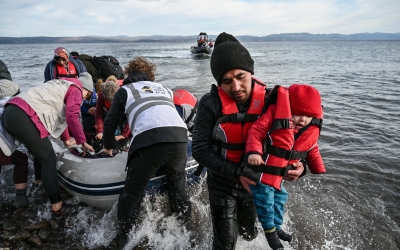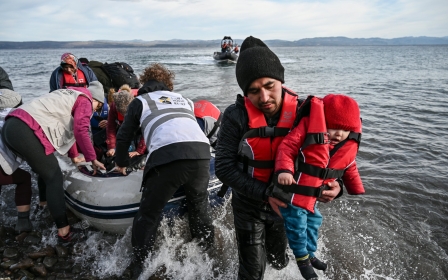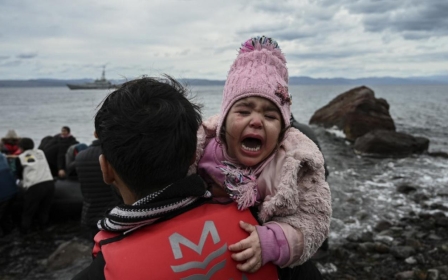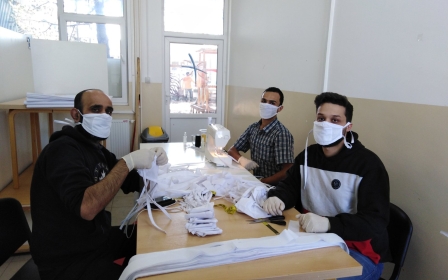Coronavirus: Greece locks down second refugee camp after man tests positive
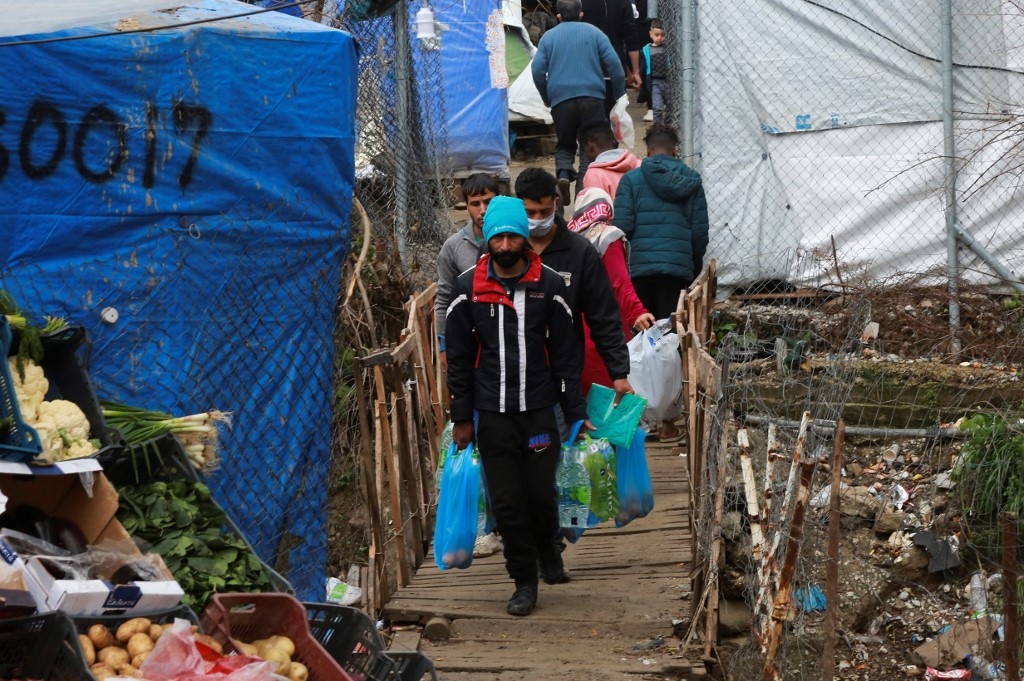
Officials in Greece on Sunday placed a second migrant camp near Athens under lockdown after an Afghan man tested positive for the coronavirus, the migration ministry said.
Officials said the camp in Malakasa, some 38km northeast of the capital, had been placed under "full sanitary isolation" for 14 days, with no one allowed to enter or leave.
Police guarding the site would be reinforced to ensure the restrictions are implemented, the ministry said.
A separate, enclosed facility started operating last month for migrants who arrived after 1 March, it said.
The ministry said the 53-year-old Afghan man, who has a prior ailment, had personally sought help with virus symptoms at the in-camp medical facility.
He was subsequently taken to an Athens hospital where he tested positive, and his family was quarantined, AFP reported.
A full screening of the camp is in process, the ministry said.
Among Greek migrant camps, where tens of thousands of asylum-seekers live in dire conditions, there is already an outbreak at a facility in Ritsona near the capital where 23 people have so far tested positive.
Regulations have been announced to keep residents in all camps as far from the local population as possible.
Migration Minister Notis Mitarachi has warned that asylum seekers who attempt to break the lockdown will be prosecuted.
'Impossible to contain an outbreak'
Humanitarian groups have repeatedly warned about the dangers of coronavirus spreading in camp environments, and Greece has been an area of concern because it has become a gateway for migrants and refugees seeking to enter the European Union.
More than 110,000 people currently live in migrant facilities across the country, 40,000 of them in overcrowded camps on five islands.
No cases have been recorded in camps on Greek islands so far.
Thousands more refugees have arrived on Greek islands since late February after Turkey halted measures to prevent them from reaching Europe.
Aid groups have urged Greece to evacuate the camps, warning that the risk of the fast-moving virus spreading among people living in squalid conditions is high and containing an outbreak in such settings would be "impossible".
Medical group Doctors without Borders (MSF) has warned that there is not enough access to water or soap in many of the camps to ensure hygienic conditions.
"It would be impossible to contain an outbreak in such camp settings in Lesbos, Chios, Samos, Leros and Kos," MSF's Medical Coordinator in Greece, Dr Hilde Vochten, said in March.
"To this day we have not seen a credible emergency plan to protect and treat people living there in case of an outbreak."
Tourism hit
The conservative Greek government wants to replace all existing camps on islands with enclosed detention centres, but its plans have been met with resistance from local authorities and residents who want all facilities shut.
Greece recorded its first case of the new coronavirus at the end of February. Since then, it has confirmed 1,673 cases of Covid-19 and 68 deaths.
It has imposed a nationwide lockdown and banned arrivals from non-EU countries as well as Germany, Britain, Italy and Spain.
The measures have hit its economy, which is relying on tourism for a recovery after a decade-long debt crisis.
Finance Minister Christos Staikouras reiterated on Sunday that the economy was expected to shrink by about 3-4 percent this year, but added Greece had a 37bn euro ($40bn) cash buffer that it could tap into to support it.
Middle East Eye delivers independent and unrivalled coverage and analysis of the Middle East, North Africa and beyond. To learn more about republishing this content and the associated fees, please fill out this form. More about MEE can be found here.


